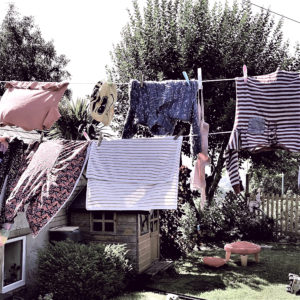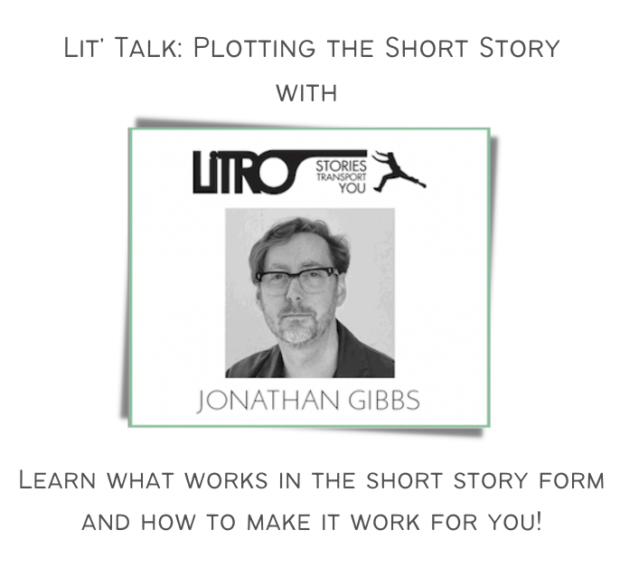You have no items in your cart. Want to get some nice things?
Go shopping
As soon as they opened the nursery door, Liz blurted out, “We’re not a couple.” And I went red, so they must have assumed romance was at least on the cards. I said, “Ronan’s father isn’t around.” That was that. No sharp intakes of breath. No knowing smiles. Just a note on the form and the tour continued. I don’t want to make Ronan go there. The smell of poo and babies wandering about as if they’re lost. The girl waved her arms when she said, “This is free-flow play.” Which seemed like a fancy way to describe toddling about dribbling, clinging to a dirty piece of Duplo. She said that they “talk about feelings and after snack time and practise yoga.” The staff look even younger than me; I guess pay isn’t good.
On the pavement afterwards, Liz reminded me I don’t have any choice, but I might still be able to get work to have me part-time, if I get myself together to phone HR. I laid Ronan in the buggy and tucked the blanket over his bare toes; she put her arm around my shoulder and said, “I can pick him up for you on Thursdays early if you like. But, I warn you, I will feed him ice-cream.” I pressed my face into her arm and cried a little bit. Managed to say, “Thanks.” And swallow it down. Liz removed her arm and started pushing the buggy.
She walked ahead. Her cheeks were purple. Steering with one hand, she used the other to ruffle her hair, so it stood up in spikes and fell in her face; stretched her neck out and rolled her shoulders, so her heavy body became tall and straight. That gesture impressed me at school. The way she never bothered about looking like everyone else. She ate chocolate while they all puked up salad. Wore black DMs. Actually read the books from the library and liked bands from the ’90s no one else had heard of. She made me feel small then; she turned and smiled, “They’re probably watching from the corner of the window. They’ll definitely think we’re a couple…”
Sebastian hasn’t texted again since I ignored his offer of money.
I carried on walking behind Liz down Hainault Avenue, past the massive brown and white semis with paving or Astroturf outside; shiny cars; double-glazing sealing the people inside like vacuum packed boneless fish. Liz had the buggy. My arms felt too light. When I thought about the nursery fees, refusing to reply to Sebastian seemed pointless. What do I get by sulking? It would be better for Ronan if I could take him and Gran on holiday once a year.
But I don’t want to go on holiday with Sebastian’s money. And what if he decided he wanted to introduce Ronan to his wife and take him away himself – on an aeroplane? What’s Mum’s damp house and weedy garden compared to a holiday home in Dorset?
We stopped at the place where the A13 meets that other massive road; where diesel gets into your eyes and sticks to your skin. I lifted Ronan out of his buggy at the crossing, above the exhaust. He wriggled his toes and shouted. He likes watching cars. Liz stroked the side of his face with one finger and asked me if I wanted to get some food. It felt awkward.
We used to go to that café after school if we didn’t want to go home yet. Because it was only quarter to twelve on a Thursday, we had the place to ourselves. Sat by the window. Ronan was breastfeeding. We watched an old lady pass by bent over and wrapped in scarves, her legs emaciated and bare; face tense with pain. We both ordered soup and coffee. Liz curled a pack of sugar around and around her finger and looked at the table instead of my boob. I said the toddlers at the nursery were like puppies in a puppy farm. She smiled, but didn’t reply.
We hadn’t mentioned the argument we had the night after I came back from seeing Sebastian. I didn’t feel like bringing it up.
By the time my soup came, I was almost going to faint with hunger. It’s hard to eat soup, with a baby’s head under your spoon and only one hand. I burnt my tongue and throat. Liz’s sugar packet burst and left a little pile of sugar on the table. She looked at me. Got it over with.
“Don’t ever accuse me of fancying you ever again. I don’t fancy you. It would be like fancying my sister, if I had one. Get over yourself. Do you understand me? I won’t be the puppy you kick every time you get drunk and mess up. Don’t take your problems out on me. I know it’s been hard since your mum died.” She looked away. “But losing your only friend won’t help. I can babysit sometimes, but you need to sort your own head out. Forget about Sebastian. No one’s coming to rescue you. You’re an adult now, Maud. You have to rescue yourself. And your son.”
I wanted to leave, but Ronan was still attached to me. Milk leaking out the sides of his hungry mouth.
I told her I was sorry. But didn’t want to talk about mum. There was no point correcting her. She just assumes that, because he’s twenty years older and married, he only used me for sex. To Liz, men are simple.
She was more her old self then. Ate her soup quickly and took Ronan so I could finish mine. It was cold. I couldn’t taste it. She played peepo behind her roll. Ronan grabbed the roll and gummed it. He was getting his first tooth. It’s through now and he’s sleeping better.
Liz and me used to sit outside that café in the summer smoking, then rub ourselves with lemon segments to cover the smell. After our A-levels Liz poured ketchup all over her Sylvia Plath book at the table by the window – to celebrate never ever having to read it again.
I liked Plath – she made me realise that it wasn’t only mum who’d spend hours in silence facing demons no one else could see. The poetry helped me understand the puppet expression mum sometimes had on her face – when she fell into her green chair after a day at Marks and Spencer. When I was little I thought that, if it wasn’t for me being born, mum wouldn’t have to work there and maybe she wouldn’t be like that. The Bell Jar taught me Mum might have been like that anyway. Even though the parts about suicide made me nervous – especially after the teacher told us what Plath did… I could never have explained that to Liz. Liz pronounced judgement – Plath was even more self-pitying than Morrissey; Patti Smith could beat her in a fight any day. I loved Liz for listening to Patti Smith.
After lunch Liz went to meet Joanie from work. I pushed Ronan home. He fell asleep in the buggy. The sun was sort of warm for the first time this year. So I left the buggy by the back door, with him in it sleeping and hung out washing. When our baby grows, grey bras, odd socks, ancient ragged t-towels and jeans were all neatly hung up, I stood there leaning against the wall watching them blow about. Hypnotised. Clothes in the wind make me think of domestic life stretching on forever. Mothers from past centuries – their names blotted out by men – hanging out wet clothes on the first warm day of spring. Their ghosts haunt my laundry.
That was two weeks ago. I haven’t had time to write since. Because Ronan’s tooth was keeping him up; I had to prepare stuff for going back to work. There’ve been a few days since when it was nearly warm. I took Ronan once to Old Leigh to play with the stones on the beach. He can sit up on his own now and chew a little bit. He’d eat the stones if I wasn’t watching him. He eats like a lion. Liz keeps threatening she’s going to buy him an ice cream. No matter what I say.

Hannah Glickstein
Hannah was an English teacher for nine years. While teaching, she self-published graphic stories about a skeleton named Skinny Bill. She has written for the Camden New Journal, Catholic Herald, Huffington Post and Spectator Schools. She was shortlisted for the Fish Poetry Prize in 2016. Her first novel – Eyeball Computer - was published with Leveller’s Press in 2019. Hannah’s stories have been published by Scribble, Stroud Short Stories and Platform for Prose. She writes a blog.
- Web |
- More Posts(1)




